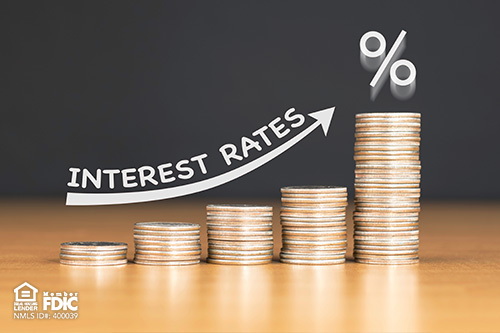Whether saving for a down payment on a home or purchasing a new car, opening a savings account can have many benefits. Certificates of deposit (CDs) make a great savings option because they often offer higher interest rates than most other deposit accounts. CDs are a type of time deposit, meaning that you agree to keep your money in the account for a certain period, typically three months to five years.
Here are some of the benefits of opening a certificate of deposit account:
- Higher interest rates. CDs typically have higher interest rates than savings accounts and money market accounts. Banks are willing to pay more interest to depositors who obligate their money for a specific period.
- A viable alternative to the stock market. If you have a retirement fund that you will need in 10 years but don’t want to expose it to the risk of a declining stock market, you can put it in an insured CD at a reasonable rate. The longer the term, the higher the rate, and you’ll know exactly how much money you’ll have at the end of the term.
- Your returns are guaranteed. CDs are insured by the Federal Deposit Insurance Corporation (FDIC), so your principal and interest are protected up to $250,000 per depositor.
- Predictable returns. Since your rate is locked in over a specific time, you can plan accordingly when diversifying your portfolio.
- Flexible maturity dates. CDs come in various terms, so you can choose one that fits your needs. If you need access to your money in the short term, you can choose a CD for a three- to five-month term. If you are saving for a long-term goal, you can choose a CD with a more extended period, like two to three years. A way to take advantage of longer CD term rates while still retaining accessibility is to create a CD ladder. This is done by taking out several CD accounts with staggered term intervals and even amounts. For instance, you might open a six-month CD for $2,500, a nine-month one for $2,500, and a 12-month one for $3,000. This provides more flexibility by enabling access to your cash more frequently.
Here are some strategies to consider when choosing a CD:
- Have a goal for when it matures. How will you use the CD? Are you saving for college? A new car? Why you are saving can be as important as how you will save. Create a goal that will not require an early withdrawal, or select a CD that has a short-term if you know you’ll need the money sooner.
- Shop around for the best returns. Before you open a CD, compare rates from different banks. Some banks offer relationship pricing or higher interest rates on CDs because they consider the aggregated balances on checking accounts of which the customer is a holder.
- Weigh CD APY vs. savings account APY. The balance factor is the term. If you can get an outstanding APY for your CD significantly better than your savings account rate over a term you are comfortable with, it may be in your best interest to get a CD. However, if the rate requires a CD term you cannot commit to, you may want to wait until the CD rate rises.
CDs can be a safe and profitable savings option if you plan accordingly and won’t need access to the funds over time. If you have any questions about opening a certificate of deposit account, call the experts at NASB at 800-677-6727 or click here for more information.




